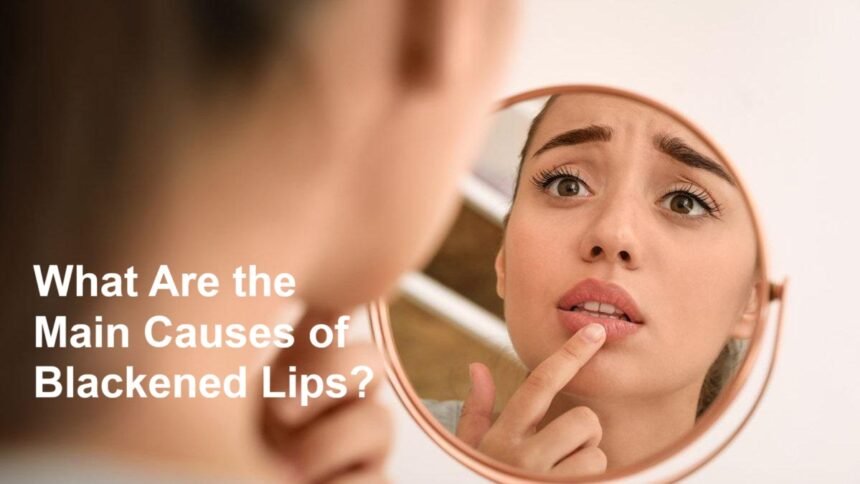Introduction
Darkened or blackened lips are a common cosmetic concern that many people experience at some point in their lives. While they are often considered merely a skin pigmentation issue, the causes behind dark lips can be diverse, ranging from external environmental factors to internal health conditions. Understanding these causes can help you take proactive steps to improve the appearance of your lips and address underlying health issues.
1. Excessive Sun Exposure
One of the primary causes of dark lips is prolonged exposure to the sun’s ultraviolet (UV) rays. Just like skin on other parts of the body, lips are susceptible to UV damage. Over time, this exposure can increase melanin production in the lips, leading to pigmentation and darkening. People who spend a lot of time outdoors without lip protection are often at a higher risk.
To prevent this, it’s advisable to use lip balms with SPF and avoid excessive sun exposure, especially during peak hours.
2. Smoking
Smoking is a significant factor contributing to darkening of the lips. The chemicals in tobacco products cause pigmentation by stimulating melanin production and reducing blood flow, which can result in lips appearing darker or stained. Additionally, frequent smoking tends to dry out lips, leading to chapping and further discoloration.
Quitting smoking not only benefits your overall health but can also gradually restore the natural color of your lips over time.
3. Lip Pigmentation Conditions
Certain skin conditions and pigmentation disorders can cause localized or generalized darkening of the lips. Conditions like melasma, hyperpigmentation, and post-inflammatory pigmentation can result from hormonal changes, skin injuries, or chronic inflammation.
If you notice sudden or uneven darkening, it’s essential to consult a dermatologist to identify specific underlying conditions and appropriate treatments.
4. Dehydration and Poor Lip Care
Dehydration is often overlooked as a cause of dark lips. When your body lacks enough water, your lips can become dry, cracked, and discolored. Similarly, neglecting proper lip care—such as not exfoliating or moisturizing—can lead to dead skin buildup, making lips appear darker.
Maintaining proper hydration, exfoliating gently, and applying nourishing lip balms can help improve lip color and texture.
5. Excessive Caffeine or Tea Intake
Consuming large quantities of caffeine-rich beverages like coffee and tea can stain the lips over time. The tannins and dyes in these drinks can lead to pigmentation and darkening, especially with habitual overuse.
Limiting caffeine intake and rinsing your mouth after consumption can help reduce staining and discoloration.
6. Allergic Reactions and Skin Sensitivities
Certain lip products, cosmetics, or skincare items contain ingredients that can cause allergic reactions or irritation, leading to hyperpigmentation. Allergic contact dermatitis can trigger inflammation, which promotes melanin production as part of the skin’s response.
Perform patch tests before trying new products and choose hypoallergenic, gentle formulations to minimize the risk.
7. Medical Conditions and Medication Side Effects
Some underlying health issues can contribute to lip pigmentation changes. Conditions such as Addison’s disease, anemia, and hormonal imbalances may cause hyperpigmentation of the lips and surrounding areas.
Certain medications, including some antibiotics and oral contraceptives, can also cause increased pigmentation due to hormonal effects or drug reactions.
If the darkening of your lips appears suddenly or is accompanied by other symptoms, seek medical advice to rule out any serious health concerns.
8. Aging
As we age, skin pigmentation can naturally increase due to hormonal changes and cumulative sun exposure. The lips, being sensitive and often exposed, tend to darken gradually over time, resulting in a more pigmented appearance.
While aging is natural, protecting lips from sun damage and maintaining good skincare habits can slow down pigment changes.
Conclusion
Darkened lips can result from a variety of factors, including environmental exposures, lifestyle choices, skin conditions, and internal health issues. Recognizing these causes is the first step toward effective treatment and prevention. Protecting lips from the sun, quitting smoking, staying hydrated, avoiding allergenic products, and consulting healthcare professionals for underlying conditions are important measures to restore natural lip color and improve their appearance.
If you’re concerned about persistent or sudden darkening of your lips, it’s always best to seek advice from a dermatologist or healthcare provider to identify the root cause and receive appropriate treatment. With proper care, you can maintain healthier, pinker, and more vibrant lips.












